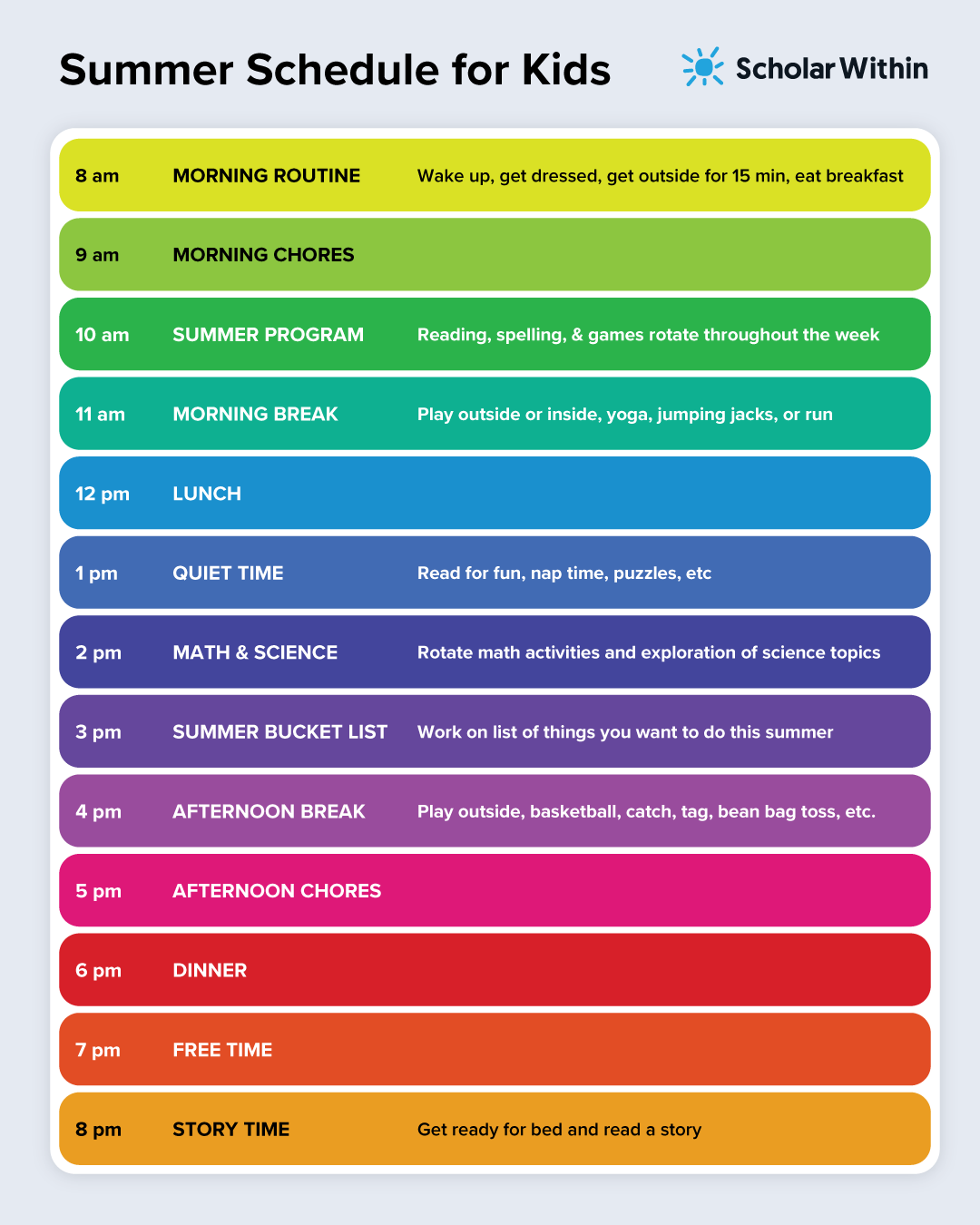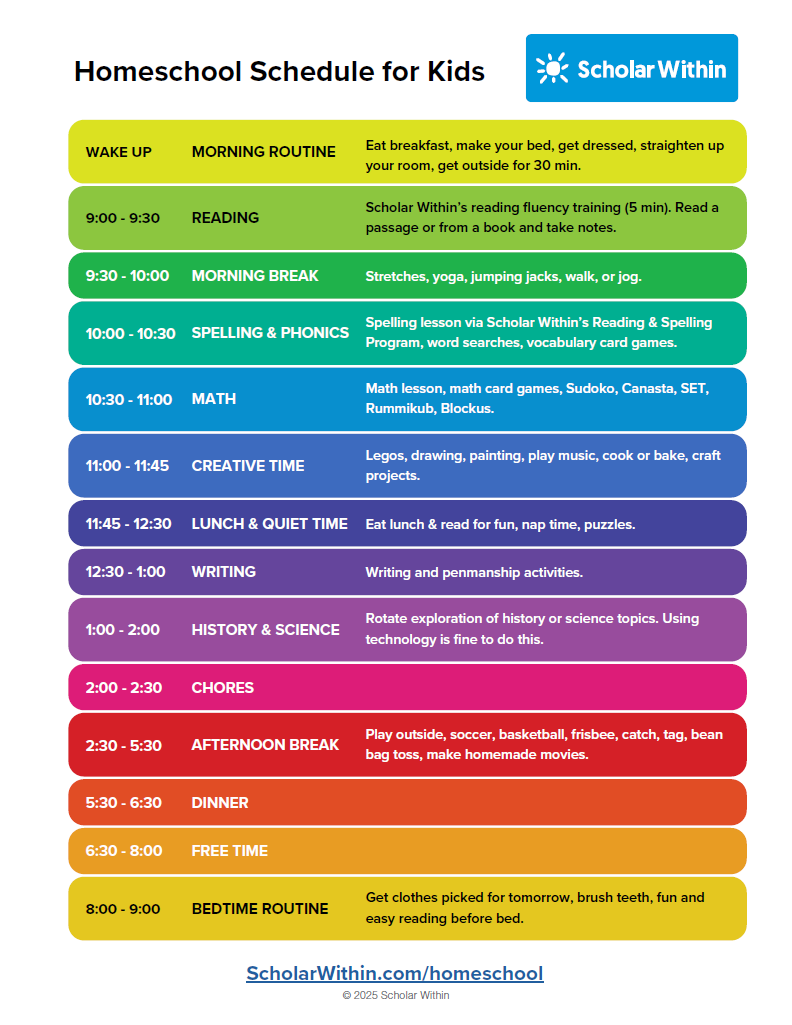
Parent-Teacher Conference Questions
Parent-teacher conferences are the perfect time for you to ask questions and to get a report from your child’s teacher. This is your opportunity to discuss what you see at home, as well as what the teacher sees at school.
Many kids are still behind due to COVID-19 disrupting learning. Studies are showing that students on average could have lost five to nine months of learning due to COVID-19.
Your child is not alone if they are behind, but you can help your child get the most out of the school year and help mitigate these losses. Parent-teacher conferences are a perfect time to ask your teacher what you can do.
Questions to ask at Parent-Teacher Conferences
- Do your kids join their lessons on time?
- Do they pay attention throughout the lesson?
- Have your kids been turning in their homework?
- Are they working during class time?
- Are your kids struggling with their homework?
- Do your kids like school?
When you prepare as a parent for parent-teacher conferences, you help set your child up for a better learning environment. Taking the time to prepare questions and information lets your child’s teacher know that you are an aware parent who is caring and concerned about your child, whether they are doing great and making all A’s, struggling, or somewhere in between. There are some specific things you can do to create a partnership with your child’s teacher so that your child has a terrific school year.
Parent-teacher conference time is not just about hearing what your child’s teacher has to say, it is also about what you convey to the teacher so they can best help your child. When you prepare for the meeting with a Parent-Teacher Conference Form, you increase the power of the conference a hundred-fold.
Although conferences are most often scheduled for this time during the year, you can schedule a parent-teacher conference at any time when you feel a need to check in with your child’s teacher.
Download Free Parent-Teacher Conference Questions Form PDF
Here is a list of items and questions you might discuss with your child’s teacher during parent-teacher conferences:
General Parent-Teacher Conference Concerns
If your child has allergies, has frequent ear infections currently, had them frequently in the past, or is immunocompromised, letting your child’s teacher know will help them further understand their learning circumstances. It’s important to mention if you suspect there might be a learning problem, as well as how much time it takes your child to do their homework – details such as whether it is done very quickly or it takes a long time are important.
If your child is completing their work correctly and very quickly, they may not be challenged enough. If they are taking a considerably long time, there may be a learning problem hindering their ability to complete the work in a reasonable amount of time. Again, parent-teacher conferences give you, the parent, the opportunity to have these kinds of discussions with your child’s teacher.

Why do you need to tell the teacher if your child has allergies or has had or has frequent ear infections during your parent-teacher conferences?
If your child has allergies, they may have problems with listening skills, as they may be ‘stuffed up.’ Frequent ear infections also impact various learning skills, including reading, spelling, and even the ability to pay attention to a lecture or discussion. In the primary grades, frequent ear infections can even make learning to read more difficult when ears are not working properly.
Teachers don’t always think in terms of a child that has a cold or an ear infection may not actually be hearing instructions. While they are aware that your son or daughter may not be at their best, they don’t always realize that what the child is hearing may sound like a foghorn or like they are underwater.
Why is it important to tell the teacher how much time your child is spending on homework – does that have anything to do with a possible learning problem?
The time element helps the teacher gauge how your child does their work independently. It can also be an indicator of possible learning problems, as well as even whether your child likes reading or math.
What is a 504 and an IEP? Does the teacher already have a copy of your child’s 504 or IEP?
504s and IEPs are both legal documents to help your child. The 504 is done for accommodations or modifications within the classroom. An IEP is an Individualized Education Plan that is developed with an IEP team for when your child needs additional help through a resource class or a special day class. Your child’s teacher typically knows if your child is under a 504 or an IEP, but that doesn’t mean they have had a chance to read it to see what is in it. Remember, these are both legal documents that need to be complied with.
When you email a copy to your child’s teacher prior to your parent-teacher conference or hand the teacher a copy at the conference, it lets them know you are aware of the required accommodations. It also gives them easy access to the document. You do not want to create an adversarial relationship with your child’s teacher but you do want to ensure cooperation and a partnership with them. Parent-teacher conferences are a perfect opportunity for you to set that relationship up for the rest of the school year.
Why should you bring in some of your child’s homework to show the teacher during your parent-teacher conferences?
Obviously, your child’s teacher has seen their work before, but they don’t see how your child is doing the work when they are not in a classroom situation. Bring in an assignment your child really enjoyed or found interesting, as well as one that was very difficult. This way the teacher can get an idea of how your child is learning at home when they are independently doing the work. When the teacher has this information, he or she can and usually does adapt their teaching accordingly.
If a lot of students are struggling or have struggled with a particular type of assignment, the teacher can re-teach the concept in a different manner. If your child is the only one or one of just a few struggling, the teacher can make some slight changes for your child or those few to be sure they understand the concept.
Keep separate folders for each of your children containing work samples and the checklist of items you want to discuss at their parent-teacher conferences.
Is your child behind?
At Scholar Within, we have developed research-based reading and spelling programs to help your kids advance faster than school alone. Our step-by-step at-home and online learning programs improve reading fluency, comprehension, spelling, and more. We do this through short daily activities 3-5 days a week for 20-40 minutes a day. We have different leveled material for grades K-8.
Learn more about Scholar Within’s learning programs:

Who is Scholar Within?
Scholar Within was founded by learning expert Bonnie Terry, M.Ed., BCET. Bonnie began designing and developing her own custom educational tools when she started her private learning center in the 1990s. Teachers kept asking what she was using with the kids who saw her because of the dramatic improvements that the kids made in school. From there, Bonnie decided to make her materials available to teachers and families worldwide.
Now, Bonnie Terry has turned her materials into a full-service online program that you can follow step-by-step at home, on your schedule. School alone is not enough anymore. Bonnie’s programs boost your kid’s overall learning skills by focusing on improving the auditory, visual, and tactile processing areas of your brain to make it work more efficiently.
Learn about Scholar Within’s At-Home and Online





